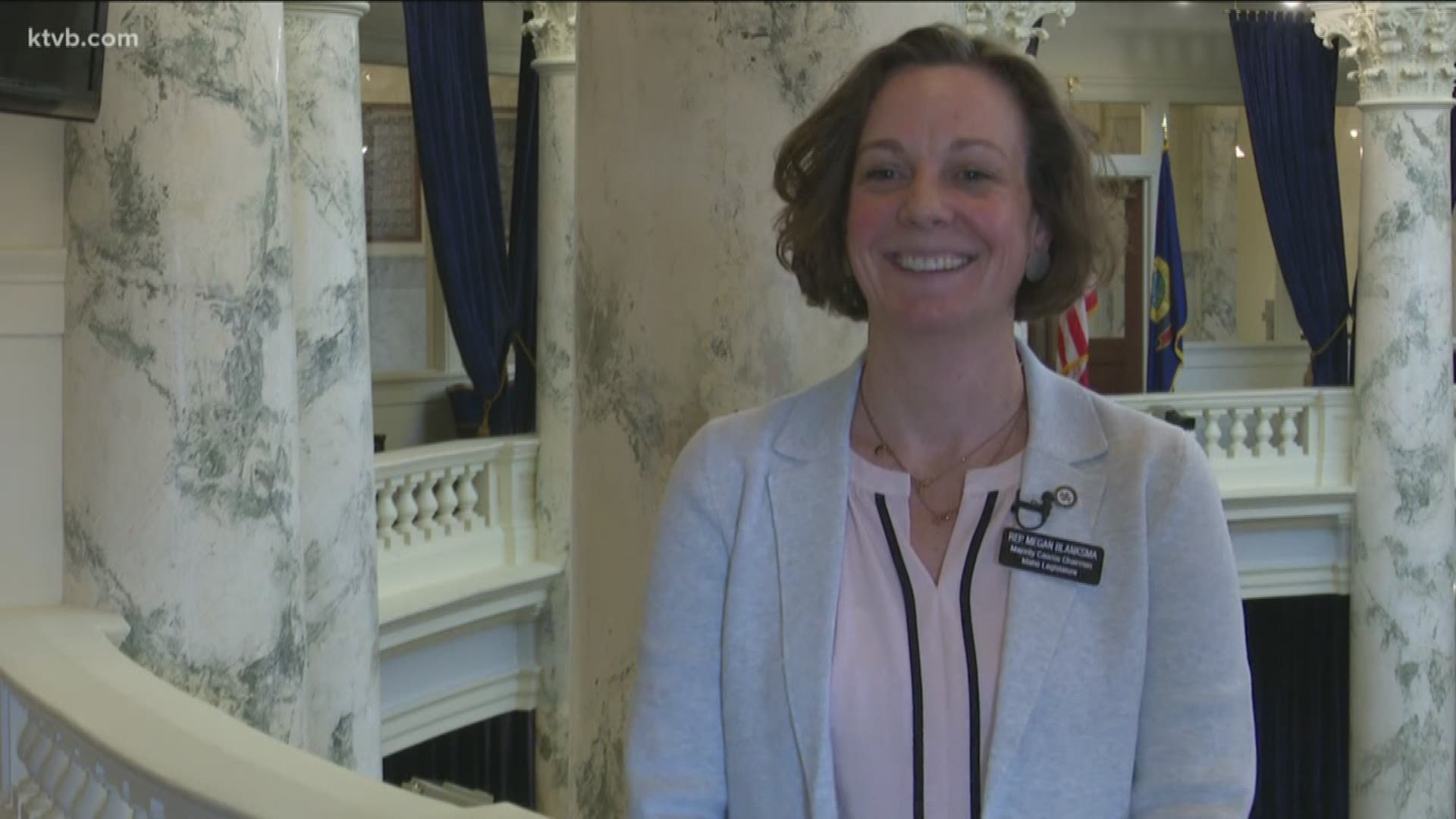BOISE, Idaho — Editor's note: The above video discusses some of the common misconceptions surrounding the cost of Medicaid expansion.
Legislation aimed at tapping Idaho counties to help fund the state’s share of Medicaid expansion costs while also ending the county medical indigency program and the state’s Catastrophic Health Care program died in a House committee Friday morning, but by late afternoon, a new bill had been introduced to hit counties for $12 million a year.
Both a legislative interim committee and Gov. Brad Little had recommended tapping counties for $8.5 million a year. But the new bill introduced at a hastily called committee meeting late Friday afternoon hits up counties for $12 million.
“What we have here is a very straightforward bill to attempt to get about $12 million from the counties in lieu of the county indigent program to put into the Medicaid expansion program,” Senate Health & Welfare Chairman Fred Wood, R-Burley, told the committee at the late-afternoon meeting. He said the new bill will be up for a public hearing in the committee at 8 a.m. Monday.
Wood had essentially written off the plan after the earlier meeting, at which an alternate proposal that never made it to the bill stage also was killed; it sought a $10.5 million shift in public health district funding to help pay for Medicaid expansion.
The committee voted unanimously to hold HB 600, the county Medicaid funding bill sponsored by Rep. Britt Raybould, R-Rexburg, in committee, killing it for the session; and Wood pulled his health district proposal. Raybould’s bill would also have ended the county medical indigency program, which counties fund entirely from local property taxes; and the state Catastrophic Health Care Program, which is funded by the state general fund; while seeking $12 million a year from counties. The idea there was that with indigent Idahoans now more likely to be covered by expanded Medicaid, those programs no longer would be needed.
“There weren’t enough votes to get HB 600 out of committee,” Wood said after the panel’s brief morning meeting. “And apparently there’s not enough votes to go forward with the health district proposal. So at this point in time, we’re at the call of the chair, and what happens from here on is above my pay grade. Leadership is going to have to talk to leadership and the governor’s office.”
“Call of the chair” is the status legislative committees go to when they’ve completed their known business for the session, and have no further meetings scheduled.
Asked if this meant lawmakers will end this year’s session without addressing how or whether to tap counties to help pay for Medicaid expansion, Wood said, “That’s possible, yes.”
RELATED: 'It's so critical for our state': Everything Idahoans need to know as the 2020 U.S. Census begins
But House Speaker Scott Bedke, R-Oakley, thought otherwise, and soon Wood was announcing another committee meeting.
The new bill would transfer 17.5% of all future state revenue sharing to local cities and counties into a new Medicaid expansion account instead. Unlike Raybould’s bill, which adjusted how much counties would have to pay based on the number of Medicaid expansion enrollees they have, this bill would just take away part of the revenue sharing, a share of state sales tax that’s a key piece of funding for local governments in Idaho, which mostly rely on local property taxes to fund local services. The shift would start on Oct. 1, 2020.
The new bill also allows counties to use their existing charity property tax levy, which funds the medical indigency program, for justice services, such as courts, which many counties fund with their state revenue sharing dollars.
The Medicaid budget set by the Joint Finance-Appropriations Committee for next year left an $8.5 million hole, with the expectation a “trailer” appropriation bill would follow to direct that county funding into Medicaid expansion, once a bill passed specified how that should occur. The state bears 10% of the costs for Medicaid expansion, with the federal government paying 90%.
Wood initially said the budget might be left as-is; if so, the hole could be addressed during next year’s legislative session with a supplemental appropriation.
Wood said HB 600 was “a very complicated bill. … It was introduced late in the session.” Some worried that by repealing multiple sections of state law, as that bill did, there could be unforeseen consequences, he said.
The health district alternative, which he worked on, looked at the 16% of public health district funding that now comes from the state, about $10.5 million this year. The idea was to end that state funding, but require counties to cover it; they are closely involved in the operation of health districts already. Then, counties would be absolved from helping fund Medicaid expansion, which would be the state’s responsibility.
“That’s a clean way of doing business,” Wood said. “Everybody kinda liked the idea.” But it, too, “came late,” he said. “I think there were fears about the adequacy of funding going forward for the health districts, and … now you’re in the middle of in effect a public health crisis,” with the coronavirus.
Rather than move to eliminate the existing county medical indigency and state Catastrophic Health Care programs this year, Wood said, “There’s no rush. You can turn off the eligibility and just let the pipeline drain naturally.” With court cases pending on the Affordable Care Act and potential impacts from that on Medicaid expansion in the future, he said, it makes sense to wait.
More from our partners at The Idaho Press: Boise homeowners receiving high numbers of requests to sell their homes
Watch more Idaho politics:
See all of our latest political coverage in our YouTube playlist:

